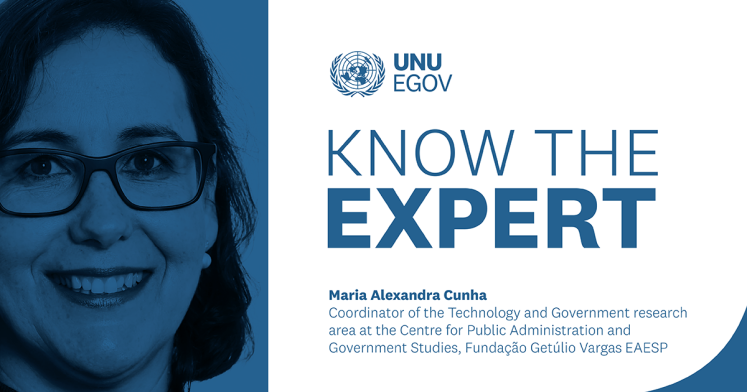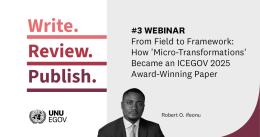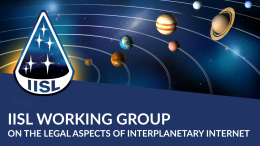In this interview, Maria Alexandra Cunha, one of the most respected experts in digital government, reflects on her career from the early days of e-Government in Brazil to her current academic and advisory roles. She argues that digital transformation must respond to real citizen needs, promote inclusion and sustainability, and address the ethical and social risks of emerging technologies. Citizen participation, she stresses, must be inclusive and meaningful, going beyond digital-only or symbolic initiatives. She advises young researchers, particularly from the Global South, to ground their work in local contexts with academic rigour, and urges public decision-makers to involve citizens in the digitalization of services.
Maria Alexandra Cunha is a Brazilian academic and one of the leading experts in digital government in Latin America. She is a Professor at the São Paulo School of Business Administration (FGV EAESP), Fundação Getulio Vargas, where she conducts research on digital transformation, public sector innovation, and smart cities.
United Nations University (UNU-EGOV): You are one of the most respected and experienced researchers in this field. What initially led you to specialize in digital governance at a time when this area was still emerging?
Maria Alexandra Cunha (MAC): In the late 1980s, I worked in a state-owned IT company in Brazil and noticed that IT management models derived from the private sector did not meet the specific needs of public organizations. So, I developed my master's thesis at Fundação Getulio Vargas on IT management in government. In the mid-1990s, during my doctoral program at the University of São Paulo, New Public Management was gaining momentum, and Brazilian governments began utilizing the internet to provide information and later public services. I understood that e-Government had emerged as a relevant and promising research area. After obtaining my doctoral degree, I returned to the same IT company and led one of Brazil's first e-government projects. A few years later, I transitioned to academia but have remained committed to digital government ever since, as a professor, researcher, and consultant.
UNU-EGOV: Drawing on your extensive academic experience and reputation, what advice would you give to the new generation of researchers entering this field?
MAC: I would advise young digital government researchers, especially those from the Global South, that it is possible to achieve global relevance by focusing on phenomena that are significant in their local context. The way governments use technology is deeply embedded in contextual factors, and reflecting on these phenomena can help explain broad, global issues, while also being very useful to governments in their own country and contributing to a better life for the local population. I would also advise them to develop their research with strong theoretical foundations and methodological rigor, without losing sight of its practical relevance.
UNU-EGOV: In your view, what makes a city truly "smart"?
MAC: A truly smart city leverages technology to address its specific challenges, enabling its population to live better each year than the previous year. These challenges may involve tackling climate change, reducing social inequality, addressing energy issues, combating urban violence, expanding democratic participation and practice, managing migration flows, or improving urban management tasks such as waste collection, mobility, income generation, and many others - often simultaneously. Managing numerous conflicting demands with limited resources, a truly smart city leverages technology to respond to the specific needs and priorities of its population, always with future generations in mind.
UNU-EGOV: In one of your co-authored articles on citizen participation as a driver of smart cities, it is emphasized that technology, without the voice of the citizen, has limited impact. How can we ensure that citizen participation through digital platforms is inclusive and meaningful, rather than merely symbolic? And how can we make sure that digital tools reinforce, rather than replace, traditional democratic mechanisms?
MAC: My concept of a Smart City is a city that utilizes technology to enhance the lives of its citizens. Even if one tries, it is not possible to fully step into the shoes of every citizen: Black, white, indigenous, young, elderly, children, adults, workers, entrepreneurs, those using public transportation or walking, people with diverse disabilities, different genders, political-ideological beliefs, religions, languages, and many other individual markers. The possible way to develop effective public policies and deliver appropriate services is by broadening the channels for listening and inviting citizens to co-plan and co-build alongside the government. Inclusive and meaningful participation mechanisms must be designed to provide everyone with a genuine opportunity to participate. A key criterion, especially in contexts of social inequality, is that these mechanisms cannot be exclusively digital. Digital tools should expand democratic participation and deliver tangible results, but the goal is not to replace traditional mechanisms of representation.
UNU-EGOV: The Local Online Service Index (LOSI) revealed major disparities across municipalities. What practical steps can local governments take to accelerate their digital transition?
MAC: To accelerate the digital transition of local governments, I would recommend:
- Investing in municipal infrastructure. Includes communication infrastructure across the territory and technological infrastructure within local government. Infrastructure alone is not sufficient to drive digital transformation, but without it, the task becomes impossible.
- Expanding policies for internet access and digital literacy. Citizens should be empowered to use technology in exercising their citizenship in a digital society, beyond training for the use of digital services.
- Training government employees in technology and the use of technology in governance. Prepare local public servants for digital transformation, covering topics such as technology, digital process optimization, data management, digital services, security, privacy, IT management, and ethics, among others.
- Adopting global standards while reflecting on local needs, to avoid misallocation of resources.
- Looking at other governments that have faced similar challenges. It is not necessary to reinvent the wheel with every new technology project.
- Building a broad network of stakeholders for digital transformation: companies, universities, civil society, and citizens. Each actor may have specific interests, but it is possible to align objectives.
UNU-EGOV: In your opinion, what ethical or social risks should be prioritized when governments adopt technologies such as AI or blockchain?
MAC: To discuss the benefits and risks of using technology in government, I often refer to a phrase by American historian of technology Melvin Kranzberg: "Technology is neither good nor bad; nor is it neutral" (Kranzberg's First Law). I often add that it is frequently both good and bad at the same time. Regardless of the technology in question, governments must remain highly attentive to the social implications of its use, not just to its immediate benefits. National governments and international institutions must address the risks to democracy, the self-determination of peoples, and the obscene concentration of wealth by a few (whether individuals, companies, or countries). Moreover, half-truths, distorted information, and outright lies cannot be considered synonymous with freedom of expression, one of the fundamental democratic principles of many countries. The appropriation of technology by organized crime networks or the rapid digital transfer of illicit funds should be a concern for all governments and multilateral organizations. Governments have a crucial role to play in regulating, reducing inequalities, and establishing effective control mechanisms. In a more focused context, I would also recommend avoiding the reproduction of inequalities and algorithmic bias, ensuring that technologies serve the public interest, and promoting open and participatory governance.
UNU-EGOV: If you had to offer just one piece of advice to a public decision-maker aiming to digitalize services with a citizen-centred focus, what would it be?
MAC: I would advise a public decision-maker aiming to digitalize services with a citizen-centred focus to include citizens in the design of service digitalization and to build hybrid, multichannel options that offer an equally high-quality user experience across all channels.
UNU-EGOV: How do you perceive UNU-EGOV's role in supporting governments as they navigate the challenges of building fair, inclusive, and sustainable digital governance?
MAC: As a researcher dedicated to the field of digital government, I perceive UNU-EGOV as a strategic actor in supporting States in transforming governance mechanisms and developing capacities through the application of digital technologies, as stated in its institutional mission. I recognize UNU-EGOV's competence in bridging applied research and policy formulation, as well as in strengthening States' capacity to design evidence-based policies aligned with the SDGs. The UNU-EGOV team comprises professionals and researchers from diverse backgrounds and various regions of the world, allowing for a broad range of perspectives and an understanding of different contexts. By promoting international cooperation, capacity development, and rights-based approaches, UNU-EGOV helps countries, and particularly those in the Global South, overcome historical inequalities and move toward a more just and equitable digital transformation.
Suggested citation: "Know the Expert "Maria Alexandra Cunha" - July," United Nations University, UNU-EGOV, 2025-07-09, https://unu.edu/egov/article/know-expert-maria-alexandra-cunha-july.




